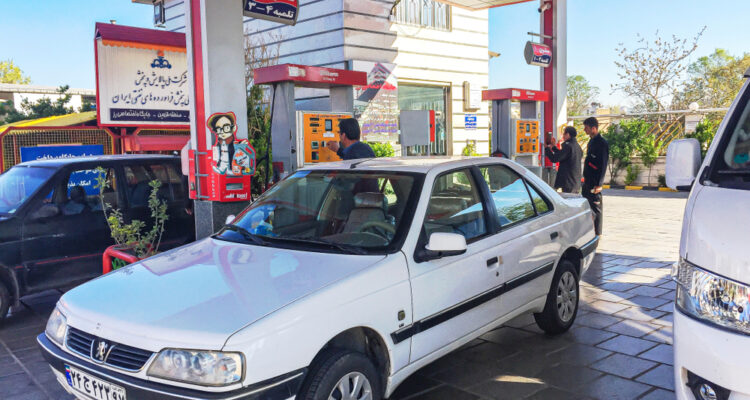The cyberattack comes in retaliation for Tehran’s “provocations” in the region, says the group claiming credit.
By Batya Jerenberg, World Israel News
Hackers dried up gas pumps throughout Iran Monday, with Tehran accusing Israel of being behind the cyberattack.
A group called Gonjeshke Darande (Predatory Sparrow) took credit on X for disrupting and disconnecting fueling stations in some 70% of the country due to the mullahcracy’s nefarious actions in the Middle East.
“We, Gonjeshke Darande, carried out another cyberattack today, taking out a majority of the gas pumps throughout Iran,” the group wrote. “This cyberattack comes in response to the aggression of the Islamic Republic and its proxies in the region. Khamenei, playing with fire has a price.”
The group published photos of documents they claimed they took off the servers of disabled stations, writing, “A month ago, we warned you that we’re back and that we will impose cost (sic.) for your provocations. This is just a taste of what we have in store.”
While the authorities asked that drivers not come to the pumps until further notice, long lines accrued anyway, and the crowds of disappointed motorists were reportedly angry. The oil ministry said that “the malfunction” would be fixed in the next few hours.
According to a noon report by opposition group Iran International, less than ten percent of the gas stations in the northern Mazandaran Province “currently have the ability to provide fuel manually without connecting to the Internet.”
Although the country’s civil defense organization at first did not admit the cause of the massive problem, saying it was “examining all possible options,” Oil Minister Javad Owji eventually confirmed that the service disruption was indeed caused by a cyberattack. He maintained that more than half of the gas stations overseen by his office were operational.
There was a similar online attack on Iran’s fuel supply system in 2021, which Tehran had blamed on Israel and the U.S.
Gonjeshke Darande, whose tag on their X account is “The song of the sparrow is the anthem of freedom!” had exposed last year what it claimed were “top secret documents” and “tens of thousands of emails from three leading steel companies in Iran on their customers and trading practices as evidence of these companies’ affiliation with the IRGC.”
The U.S. designated Iran’s Islamic Revolutionary Guard Corps years ago as a terror organization, banning companies from doing business with them, but the group pointed out that “These companies are subject to international sanctions and continue their operations despite the restrictions.”
The hacktivists’ current accusation of Iranian “provocations” in the region seems be supportive of Israel, although it claims no Israeli or Western state backing, and Israel has not commented on the attack.
Iran backs most of the terror groups in the region, including Hamas, which invaded Israel in a surprise attack on October 7, massacring 1,200 people and kidnapping 240, leading Israel to declare war on the Iranian proxy.
Israel suspects that the Islamic Republic helped Hamas plan its attack, which Tehran denies. But Iran financially backs terrorist groups in Iraq and Syria as well, and they have launched over 100 attacks against American bases in those countries, mostly in the shape of drones, ever since the war began, in reaction to White House support for Israel.
The Iran-backed Houthis in Yemen have fired a few dozen missiles at Israel in an attempt to support the Gazan terrorists, which have been shot down by various military ships in the Red Sea, mostly American.
The Lebanese Hezbollah organization is its primary client, however, with Tehran not only sending it money and arms but training and even integrating its Islamic Republic Guard Corps in their military sites and rocket-manufacturing centers. Hezbollah has fired over a thousand rockets at Israel during the ongoing war, leading to the evacuation of all Israeli border communities in the north.
Israel has so far responded with air and artillery strikes on the sources of fire, but has warned that if they do not stop, the IDF will soon start a far more aggressive campaign that will push the terrorists far away from Israel’s border.





